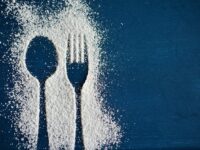A cup of coffee brewing adjacent to a starving artist scribbling away at his newest masterpiece is not an uncommon image. In the early nineteenth century, French writer Honoré de Balzac would consume the equivalent of fifty cups of coffee a day in the form of ground coffee beans, claiming to write more productively under such conditions. For some, caffeine and creativity seem to go hand in hand. But is this relationship the result of scientific phenomena, or a side effect of an intricate placebo?
One study from the early 1990s consists of a survey in which four groups (artists, musicians, writers, and a control) were asked about their use of common controlled substances. While artists claimed the heaviest use of caffeine compared to the other groups, there was no statistically significant difference. Furthermore, when questioned on the motives behind their use of caffeine, artists cited caffeine as helpful in promoting focus and persistence, but not necessarily the key to significant creativity.
Another study on the matter of caffeine and creativity was performed this past year at the University of North Carolina at Greensboro, in which researchers observed how subjects’ convergent and divergent thinking abilities were affected by caffeine. Convergent thinking is the process of creatively solving problems, and divergent thinking is the generation of creative ideas. Several tests for both kinds of thinking were distributed to examinees who had been administered either caffeine or a placebo. Subjects who had been given caffeine showed superior ability in solving convergent thinking problems. However, there was no significant difference between the two groups’ performances in divergent thinking assessments, suggesting caffeine cannot actually help one think of new ideas.
As a matter of fact, it has been suggested that creativity may actually be spurred by periods of diminished focus, which is the opposite of caffeine’s effects.
As a matter of fact, it has been suggested that creativity may actually be spurred by periods of diminished focus, which is the opposite of caffeine’s effects. Taking a break from a difficult problem may inspire original perspectives that generate new solutions to the problem, while lack of sleep, which often accompanies use of caffeine, may lead to unclear thoughts and emotional blocks that inhibit creativity.
There is no reason to believe caffeine actually helps to stimulate creative thoughts. In fact, the focus-inducing effects of caffeine may actually hinder creativity. Unfortunately, it seems the artsy aura of cafés is due more so to centuries of archetypes than scientific fact. Nevertheless, in terms of a dietary additive that promotes focus, alertness, and energy, caffeine is the ideal option.
Journal of Creative Behavior (1991) DOI: 10.1002/j.2162–6057.1991.tb01364.x
Consciousness and Cognition (2020) DOI:10.31234/osf.io/6g9av
International Review of Neurobiology (2015) DOI: 10.1016/bs.irn.2015.04.001
Image source: Pixabay.






